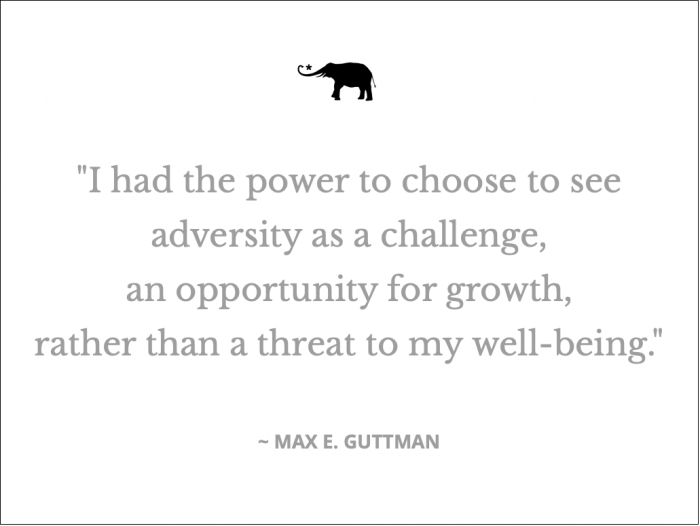Adversity is something we’re guaranteed to encounter periodically, and there’s no getting around that.
We’re all prone to facing various challenges, stresses, and frustrations along the way in life. My first real face-to-face encounter with adversity was during the shock and awe of my schizophrenia diagnosis.
As tempting as it can be to run away at the first sign of adversity, it’s better to get into the habit of tackling it head-on. For many reasons, but above all, because personal growth and development are more likely to evolve and find the right type of synergy. The initial impact, the disturbance of the disorder, is what lead me to learn these lessons.
In 2008, after my “break,” I found myself developing in leaps and bounds. People were mistaking me for a much older person and not because of my looks, given I was still baby-faced. Soon, people were beginning to use the term “old soul” to describe the richness of my character.
Some folks panic when they first grapple with adversity. Remember, the first sign of trouble doesn’t mean you have an obligation to react that way. In my case, there was no option.
I was locked away in a psychiatric hospital in Upstate New York, too far away from my friends and family, or anyone who could help. I was also too sick to communicate my needs to them, so even if they could have helped, they honestly wouldn’t have known where to begin. I was suffering from acute loss of language and word salad—symptoms of my new emerging illness.
I had the power to choose to see adversity as a challenge, an opportunity for growth, rather than a threat to my well-being.
I will never forget a course I took on Non-Violent Communication (NVC), before my schizophrenia symptoms manifested. During this, we practiced leaving our comfort zones. I learned that is the best way to advance and further develop character and empathy for others. In my opinion, this is the foundation that makes rising above adversity critically meaningful and ultimately, so transformative.
Moments of adversity provide some of the best opportunities to learn through experience.
Although it’s tempting to reach out to others to “rescue” us from our hardship, I believe that we should push ourselves to learn how to overcome these challenges on our own. That’s not to say I’m suggesting you never reach out for help, because we all need people, but there are times when it’s better for your long-term development, to figure out how to do things on your own and not rely on others to “save” you.
In every moment of adversity, there is a lesson to be learned.
Keep in mind that there is no need to fear failure, because we all lose sometimes. As much as you might covet the idea of perfection, the truth is it’s better to try and “fail” than it is not to try at all and stay “perfect” because you didn’t “fail.” I believe that not even trying guarantees our failure. Remember, we don’t need to be perfect, we need to be successful.
Moments of adversity aren’t the end of the story, they’re simply bumps in the road.
Overall, the world is less scary when you change your perception and begin to perceive adversity as an opportunity for growth, not a threat to your well-being. It’s incredible how much more you can accomplish under this mindset and perception. Even the most successful and confident people in the world have moments of doubt and insecurity.
We need to learn how to be comfortable with feeling uncomfortable.
Personally, the profound impact that my illness was having on my life and what my diagnosis meant for me moving forward, was critical. Meaning, to grow and advance from the wake of the diagnosis and its destruction, I had to embrace it radically, along with the feelings of discomfort.
Instead of folding at the first sign of a “threat,” I chose to persevere. I decided to be resilient and continue to move forward, no matter what challenges threatened to hold me back.











Read 1 comment and reply